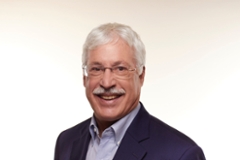Faculty

Karl Rosengren
- Professor of Psychology, Brain and Cognitive Sciences
PhD, University of Minnesota, 1989
406 Meliora Hall
kroseng2@ur.rochester.edu
Office Hours: By appointment
Research Overview
Professor Rosengren will not be accepting graduate student applications for the 2024-2025 academic year.
The focus of my work is on change: How children think about changes in the world surrounding them and how children and adults adapt to changes in their local environment in order to act safely and effectively. These topics divide into three lines of research:
- Children's Reasoning and Conceptual Development
I have long been fascinated with how children reason about objects and events in the world and how they can differentiate between things that are possible in the real world with those that aren't. This let me to examine children's understanding magic, fantasy, biological changes such as growth and metamorphosis, and children's understanding of death
- Motor Development and Control
In the motor domain, I have primarily been interested in how children and adults maintain balance and effectively more through the world. I have conducted research on how children and adults control their balance, how specific experiences such as learning T'ai chi lead to improvements in the way older adults more, and how factors such as the equipment and fatigue influence firefighters' balance and walking.
- Interaction of Cognitive and Motor Development
Most behavior emerges from the complex interaction of different factors with the individual child, the task they are confronted with, and then the environment they are in. I have two lines of research that look at how cognitive and motor development interact over childhood. The first area focusing on children's action errors - where young children (and sometimes adults!) attempt to perform an action on an object that cannot be successfully completed because the object is too small (scale error), the object is depicted in a photograph (grasping error), or the object is available on digital media (media errors). The second area focuses on the development of children's drawings. Children's drawings have long been used in a wide range of assessments, focusing primarily on the final drawing. My work investigates the underlying processes that influence the final product.
Selected Publications
- Braswell, G. S., & Rosengren, K. S. (2002). The role of handedness in graphic production: Interactions between biomechanical and cognitive factors in drawing development. British Journal of Developmental Psychology, 20, 581-600.
- DeLoache, J., Miller, K., & Rosengren, K. S. (1997). The credible shrinking room: Young children’s performance with symbolic and nonsymbolic tasks. Psychological Science, 8, 308-312.
- DeLoache, J. S., Pierroutsakos, S. L., Uttal, D., Rosengren, K. S. & Gottleib, A. (1998). Grasping the nature of pictures. Psychological Science, 9, 205-210.
- DeLoache, J. S., Uttal, D. H., & Rosengren, K. S. (2004). Scale errors offer evidence for a perception-action dissociation early in life. Science, 304, 1027-1029.
- French, J., Menendez, D., Hermann, P., Rosengren, K. S., & Evans, E. M. (2018). The effect of psychological essentialism on an understanding of lifespan changes. Journal of Experimental Child Psychology, 173, 205–221.
- Gutierrez,I. T., Menendez, D., Jiang, M. J., Miller, P., Hernandez, I., & Rosengren, K. S. (in press). Embracing death: Mexican parent and child perspectives on death. Child Development.
- Hsiao-Wecksler, E. T., Polk, J. D., Rosengren, K. S., Sosnoff, J. J., & Hong, S. (2010). Development of new analytic techniques for quantifying symmetry in locomotion, Symmetry, 2, 1135-1155.
- Jiang, M. J., & Rosengren, K. S. (2018). Action errors: A window into the early development of the perception-action system. In J. Plumert (Ed.), The Perception-Action System as a Model System for Understanding Development, Advances in Child Development and Behavior, Vol. 55, (pp. 145-172). Academic Press.
- Kirkorian, H. L., Travers, B. G., Jiang, M. J., Choi, K., Rosengren, K. S., Jobin, P., Pavalko, P., & Tolken, E. (in press). Drawing across media: A cross-sectional study of the quality of drawings produced using traditional versus electronic mediums. Developmental Psychology.
- Legare, C. H., Evans, E. M., Rosengren, K. S., & Harris, P. L. (2012). The coexistence of natural and supernatural explanations across cultures and development. Child Development, 83, 779-793.
- Rosengren, K. S., Deconinck, F. J. A., DiBerardino, L.A., Polk, J.D., Spencer-Smith, J., Lenoir, M., & De Clercq, D. (2009). Differences in Gait Complexity and Variability Between Children With and Without Developmental Coordination Disorder. Gait & Posture, 29, 225-229.
- Rosengren, K. S., Hsiao-Wecksler, E. T., & Horn, G. (2014). Fighting fires without falling: Effects of equipment design and fatigue on firefighters balance and gait. Ecological Psychology, 26, 1-8.
- Rosengren, K. S., Johnson, C., & Harris, P. (2000). Imagining the impossible: Magical, scientific, and religious thinking in children. Cambridge: Cambridge University Press.
- Rosengren, K. S., Miller, P. J., Gutierrez, I. T., Chow, P. I., Schein, S., & Anderson, K. N. (2014). Children’s Understanding of Death: Toward a Contextualized and Integrated Account. Monographs of the Society for Research in Child Development, Volume 79, 1-141.
